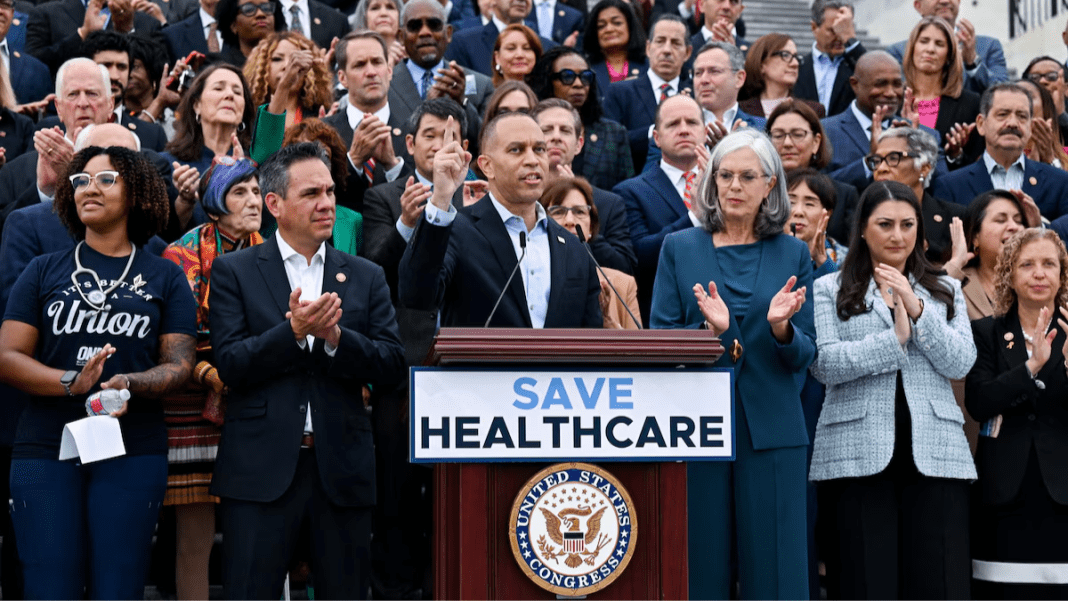A new wave of concern is spreading among Republican lawmakers in Washington. Many of them are becoming increasingly worried that their party could lose control of Congress in 2026. The main reason behind this fear is a growing problem with health care costs.
During the paandemic, extra help was added to make health insurance cheaper for millions of Americans. These special discounts, called enhanced tax credits, helped families pay for their coverage through the Affordable Care Act, also known as Obamacare. These credits were meant to be temporary, but they have been extended several times by Congress.
Now, those benefits are once again close to expiring. If Congress does not act soon, people across the country could face big jumps in their monthly insurance bills. Some estimates show that health premiums could increase by hundreds of dollars for many families. This issue is becoming a major political headache for Republican leaders.
Inside the Capitol, several GOP lawmakers are warning their own leadership that ignoring this issue could backfire badly. They believe that if the public sees their costs rise while Republicans are in charge, voters could turn against them in the next election cycle.
Political Anxiety Inside the GOP
Reports from Washington show that many Republicans are privately expressing anxiety over how to handle the health care situation. The government recently faced a shutdown crisis due to disagreements over spending. In the middle of that fight, the question of what to do about health care subsidies has become even more urgent.
One of the voices speaking out is Rep. David Valadao, a Republican from California. He represents a district where voters are highly sensitive to health care costs and has openly warned that rising premiums could hurt the party. Valadao has said that if prices go up under Republican control, it could have a clear impact on their political standing.
He also emphasized that simply watching rates rise and blaming others is not a good strategy. According to him, lawmakers should take action instead of waiting for the problem to grow worse. His comments reflect the growing discomfort among many moderate Republicans who are caught between party leadership and the everyday needs of their voters.
Behind closed doors, discussions have reportedly grown tense. A number of GOP members believe that failing to act could cause serious damage to the party’s image. Others in leadership, however, are less eager to deal with the issue because of long-standing disagreements over Obamacare.
This internal divide is putting added pressure on party leaders as they try to manage both a government funding crisis and the growing discontent from within their ranks. For now, there is no final plan in place. Still, multiple members of Congress have started drafting their own proposals to address the expiring tax credits once the government reopens and budget talks settle.
Growing Pressure From Within the Party
The warnings are becoming louder. More and more Republican lawmakers, including Rep. Valadao, are cautioning that standing by and watching costs rise could have political consequences. Several have said that voters will likely blame the party in power if health premiums increase under their watch.
Republican stronghold falls as Democrat Mindy O’Neall wins Fairbanks mayoral race
This concern is not just about numbers on a page—it’s about real people struggling with real costs. Millions of Americans depend on these subsidies to keep their health insurance. Without them, many could face difficult choices, such as dropping coverage or cutting back on other essential expenses.
The fear inside the GOP is that this situation could become a major issue during the next campaign season. If people lose affordable coverage and link that to Republican inaction, it could shift voter sentiment in key swing districts.
Some lawmakers have quietly reached out to the White House to explore ways to keep the subsidies going, even temporarily. Others are pushing their leadership to take the lead before Democrats use the issue as a campaign weapon.
For now, the uncertainty remains. What is clear is that the political tension over health care is rising fast. The question of whether to extend or replace the expiring tax credits has turned into a test of leadership within the Republican Party. Many lawmakers, led by voices like David Valadao, believe that the outcome could shape not only the future of health policy but also the balance of power in Washington after the 2026 elections.
As the debate continues, the message from many members is simple: doing nothing could carry serious consequences. Their growing unease shows how the cost of health care, one of the most personal issues for voters, can quickly become one of the most powerful forces in American politics.
